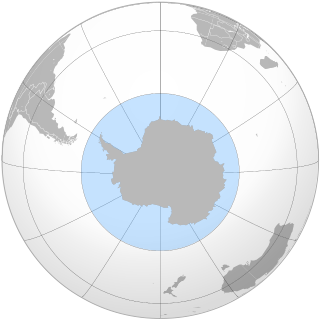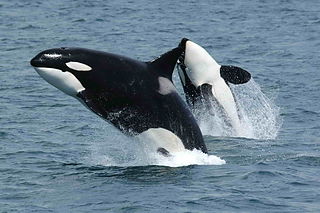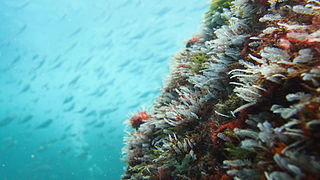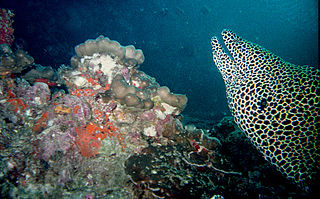 W
WThe Arctic realm is one of the planet's twelve marine realms, as designated by the WWF and Nature Conservancy. It includes the coastal regions and continental shelves of the Arctic Ocean and adjacent seas, including the Arctic Archipelago, Hudson Bay, and the Labrador Sea of northern Canada, the seas surrounding Greenland, the northern and eastern coasts of Iceland, and the eastern Bering Sea.
 W
WThe Central Indo-Pacific is a biogeographic region of Earth's seas, comprising the tropical waters of the western Pacific Ocean, the eastern Indian Ocean, and the connecting seas.
 W
WThe Eastern Indo-Pacific is a biogeographic region of the Earth's seas, comprising the tropical waters around island groups in the central Pacific Ocean. It includes most of Polynesia, except for New Zealand and the Kermadec Islands. It also includes the Marshall Islands and Kiribati from Micronesia. It adjoins the Central Indo-Pacific realm to the west, which encompasses Melanesia and the other island groups of Micronesia.
 W
WThe Indo-Pacific, sometimes known as the Indo - West Pacific or Indo-Pacific Asia, is a biogeographic region of Earth's seas, comprising the tropical waters of the Indian Ocean, the western and central Pacific Ocean, and the seas connecting the two in the general area of Indonesia. It does not include the temperate and polar regions of the Indian and Pacific oceans, nor the Tropical Eastern Pacific, along the Pacific coast of the Americas, which is also a distinct marine realm.
 W
WThe Southern Ocean, also known as the Antarctic Ocean or the Austral Ocean, comprises the southernmost waters of the World Ocean, generally taken to be south of 60° S latitude and encircling Antarctica. As such, it is regarded as the second-smallest of the five principal oceanic divisions: smaller than the Pacific, Atlantic, and Indian oceans but larger than the Arctic Ocean.
 W
WTemperate Australasia is a biogeographic region of the Earth's seas, comprising the temperate and subtropical waters of Australia and New Zealand, including both the Indian Ocean and Pacific coasts of the continent and adjacent islands.
 W
WThe Temperate Northern Atlantic is a biogeographic region of the Earth's seas, comprising the temperate and subtropical waters of the North Atlantic Ocean and connecting seas, including the Mediterranean Sea, Black Sea, and northern Gulf of Mexico.
 W
WThe Temperate Northern Pacific is a biogeographic region of the Earth's seas, comprising the temperate waters of the northern Pacific Ocean.
 W
WTemperate South America is a biogeographic region of the Earth's seas, comprising the temperate and subtropical waters of South America, including both the Pacific and Atlantic coasts of the continent and adjacent islands. It also includes the remote Gough Island and Tristan da Cunha in the South Atlantic Ocean.
 W
WTemperate Southern Africa is a biogeographic region of the Earth's seas, comprising the temperate waters of southern Africa, where the Atlantic Ocean and Indian Ocean meet. It includes the coast of South Africa and Namibia, and reaches into southern Angola. It also includes the remote islands of Amsterdam and Saint-Paul, to the east in the southern Indian Ocean.
 W
WThe Tropical Atlantic realm is one of twelve marine realms that cover the world's coastal seas and continental shelves.
 W
WThe Tropical Eastern Pacific is one of the twelve marine realms that cover the shallow oceans of the world. The Tropical Eastern Pacific extends along the Pacific Coast of the Americas, from the southern tip of the Baja California Peninsula in the north to northern Peru in the south.It also includes a number of islands and island groups, including the Galápagos, Revillagigedo, Cocos, and Clipperton. It is bounded on the north by the Temperate Northern Pacific realm, and on the south by the Temperate South America realm.
 W
WThe Western Indo-Pacific is a biogeographic region of the Earth's seas, comprising the tropical waters of the eastern and central Indian Ocean. It is part of the larger Indo-Pacific, which includes the tropical Indian Ocean, the western and central Pacific Ocean, and the seas connecting the two in the general area of Indonesia. The Western Indo-Pacific may be classified as a marine realm, one of the great biogeographic divisions of the world's ocean basins, or as a subrealm of the Indo-Pacific.